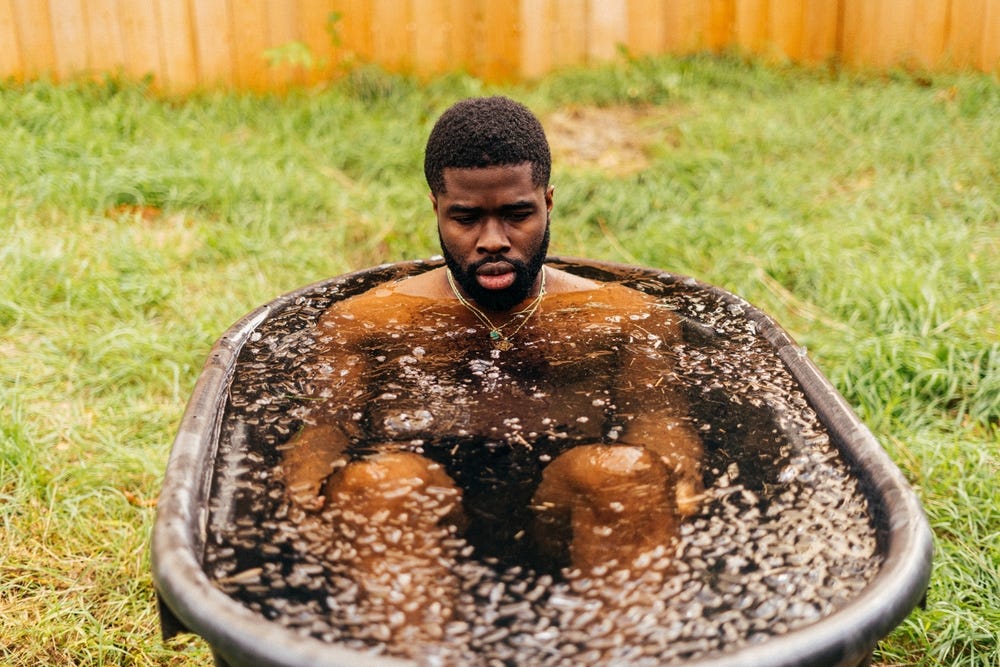Cold plunges actually change your cells
Cold water immersion for seven days significantly improves cellular resilience and autophagic function, helping cells manage stress better. This adaptation could enhance health and longevity, potentially preventing diseases and slowing aging at a cellular level.
Researchers identify mutations that can lead to resistance to some chemotherapies
Investigators have uncovered how resistance to chemotherapies may occur in some cancers. Researchers focused on a pathway that harnesses reactive oxygen species (ROS) to kill cancer cells. The study found that mutations to VPS35, a key player in this pathway, can prevent chemotherapy-induced cell death. These results could help pinpoint treatment-resistant tumors.
Discrimination-related depression, anxiety pronounced among multiracial, White, Asian populations
A new study found that over half of US adults experienced some form of discrimination, and individuals with high exposure to discrimination have more than five times the chances of screening positive for depression, and five times the chances of screening positive for anxiety. Compared to adults who do not experience discrimination, adults who do experience this mistreatment have nearly nine times the odds of screening positive for both depression and anxiety.
Meniscus injuries may soon be treated by customizable hydrogel
A new 3D printed customizable hydrogel performed well in preclinical trials with several different types of meniscal tears.
Researchers develop new DNA test for personalized treatment of bacterial vaginosis
Roughly one out of three women ages 14-49 in the United States develop a vaginal bacterial imbalance known as bacterial vaginosis (BV) during their lifetime. BV is characterized by unpleasant odors, and potentially painful side effects, as well as the risk of associated health issues later in life. More than half of the patients who seek medical care do not respond to the first-line treatment, the antibiotic metronidazole, leading to recurrence. Now researchers have developed a simple DNA PCR-based lab test -- built on a more detailed genetic analysis of the main group of bacterial organisms that cause the infection -- to help clinicians prescribe the right medicine for each patient.
Why scientists are worried about weasels
Weasels are often difficult to capture on camera, making it hard for conservationists to track their population numbers. This study aimed to determine the best material to use as bait for camera traps when studying the weasels. Researchers found that red meat worked better than other options, especially when supplemented with scent oils.
Artificial neurons organize themselves
Novel artificial neurons learn independently and are more strongly modeled on their biological counterparts. A team of researchers has programmed these infomorphic neurons and constructed artificial neural networks from them. The special feature is that the individual artificial neurons learn in a self-organized way and draw the necessary information from their immediate environment in the network.
Brain channels 'stopped in time' reveal chemical flow that enables learning and thinking
The finding of a new study could advance the development of new drugs that block or open such signaling channels to treat conditions as varied as epilepsy and some intellectual disorders.
Smart textiles and surfaces: How lightweight elastomer films are bringing tech to life
Clothes that can mimic the feeling of being touched, touch displays that provide haptic feedback to users, or even ultralight loudspeakers. These are just some of the devices made possible using thin silicone films that can be precisely controlled so that they vibrate, flex, press or pull exactly as desired. And all done simply by applying an electrical voltage.





What a collection. Keep doing this. Also, how do you do this?!